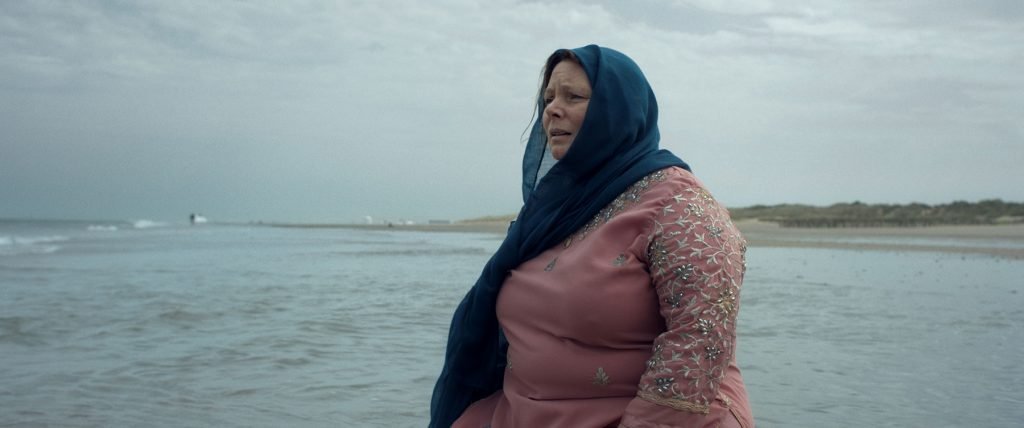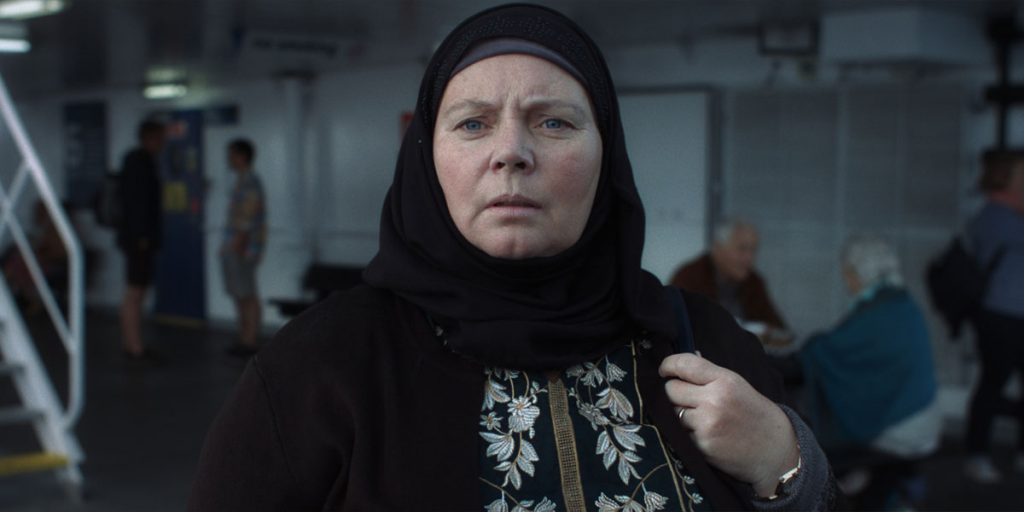After Love explores what love and loss can do to us, and the unconventional bonds that can form in times of sorrow and suffering.
In After Love, Aleem Khan manages to take one of the most discussed topics in film and turns it into a heart wrenching story of love and reconciliation. The debut feature follows a recent widow on her search for reconciliation with the memories of her marriage and the reality she now finds herself in. Mary (Joanna Scanlan, Notes on a Scandal) finds herself in a surreal situation when she discovers a French woman’s identity card in her late husband’s wallet. What ensues is a heart-breaking recount of how she meets her husband’s mistress and how their eerily similar paths cross ways they both never imagined. Make sure you have your tissues ready, as After Love certainly will draw those crocodile tears out.
The power of the film lies fully in the capable hands of Joanna Scanlan, who stays silent more than she speaks, but communicates an infinite pool of emotion through her eyes and facial expressions. Aleem Khan, as writer and director of his debut film, shows us that we don’t need spoken language to communicate a narrative that is far beyond the scope of spoken words. Through the silence, we learn and experience more about love, loss and acceptance than any character on screen can tell us. After Love takes us by the hand and shows us where grief can take us and the emotional turmoil we must work through to get any grasp on new realities and coming to terms with how this can change the memories we have of the past.
Mary (Scanlan), overcome by a sudden desire to move forward by delving into the past, crosses the channel from Dover to Calais. Symbolically crossing over from her reality to the alternate reality of Genevieve (Nathalie Richard, Never Let Me Go, Caché), her late husband’s mistress, the white cliffs of Dover eerily come tumbling down in a landslide – After Love is full of visual images reflecting how Mary’s world comes crumbling down. As for the majority of the film, Mary does not reveal to Genevieve how they are related, the film gives us an insight into the life the mistress has constructed and how different or similar their experiences of the same husband are. Their different way of handling his absence, though its permanency is unknown by one, is striking in its juxtaposition and amplification of their divergent personalities.

Touching on wider (political) aspects by exploring the Dover-Calais connection, much is said and left unsaid in the assumptions and silences that follow painful interactions between Mary and Genevieve. Dressed in her hijab with knowing little to no French, Mary being mistaken by Genevieve for the cleaner is sadly not a far stretch from daily occurrences. While the notion of ‘the immigrant’ lies heavy at the heart of this feature, the inability to communicate is a motif which guides both the narrative as the symbolic interpretation of the film. It is, after all, the strongest women who refuse to let their emotions guide them. After Love requires a strong female lead to show the strength of women, particularly in grief, on how they navigate the world where they are placed in demeaning circumstances. As we are waiting for Mary to exhale, the emotional tension is tangible.
The small details that show how grief really manifests itself are permeated throughout the film. Bodily memories such as making tea for two instead of one, or the irresistible impulse of smelling someone’s worn shirt, are not only lovingly and adorable, but turn Mary into the grieving mother we all want to give a big hug. Let’s not forget, After Love’s main element is not the meeting of wife and mistress and their relation, but the man they both loved and are grieving for. When they do reconcile and come together, it is therefore always in the context of the man who had such a huge impact on their lives. This is intensified by the overall absence of Ahmed in the narrative of the film: he does not even return as a memory. After Love radiates in its mastery of grief and reconciliation. Though their lives may be unravelling, a connection to the past might just hold it together.
After Love premiered at the BFI London Film Festival on Thursday, 15 October 2020 and is now available to watch on digital and on demand.

